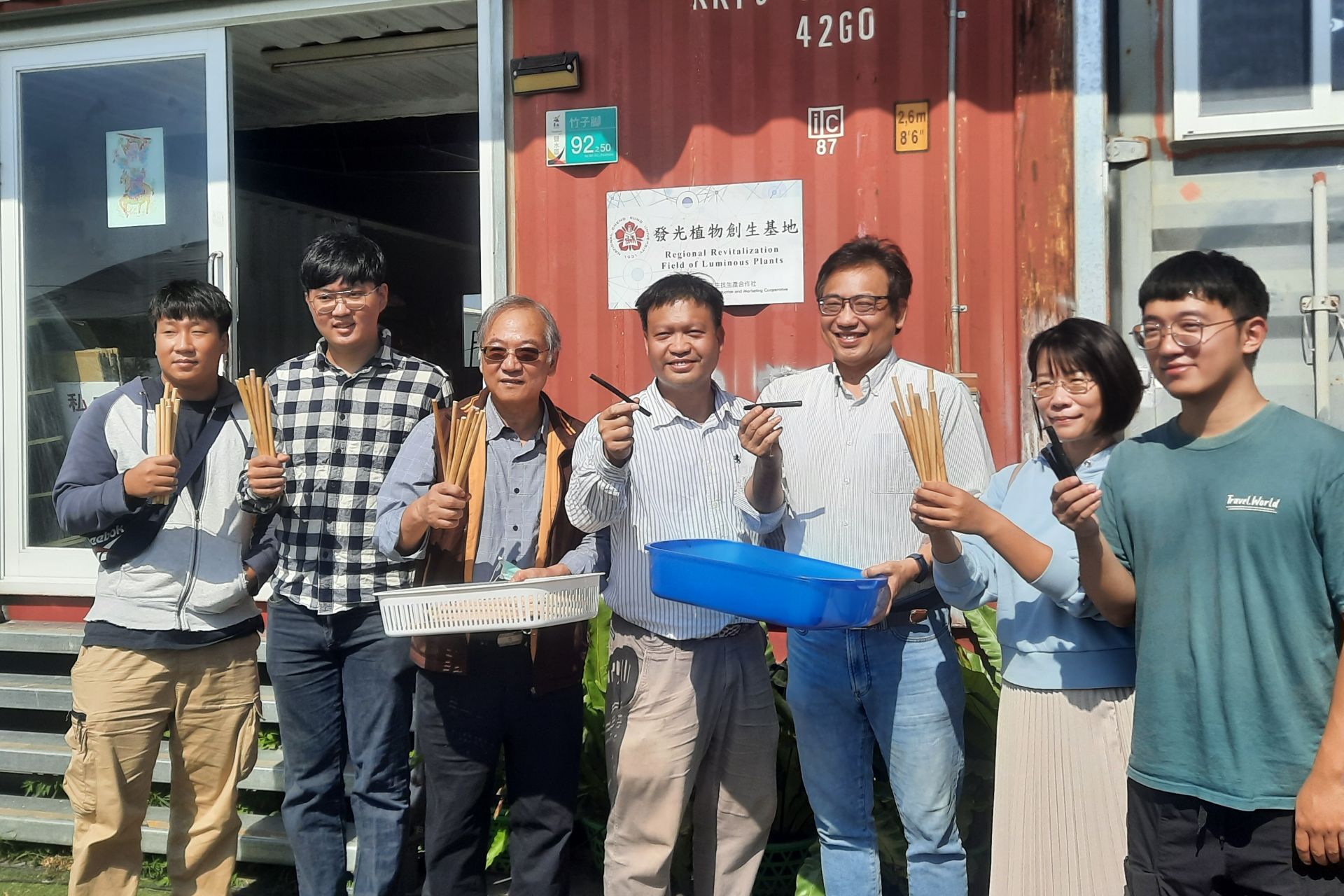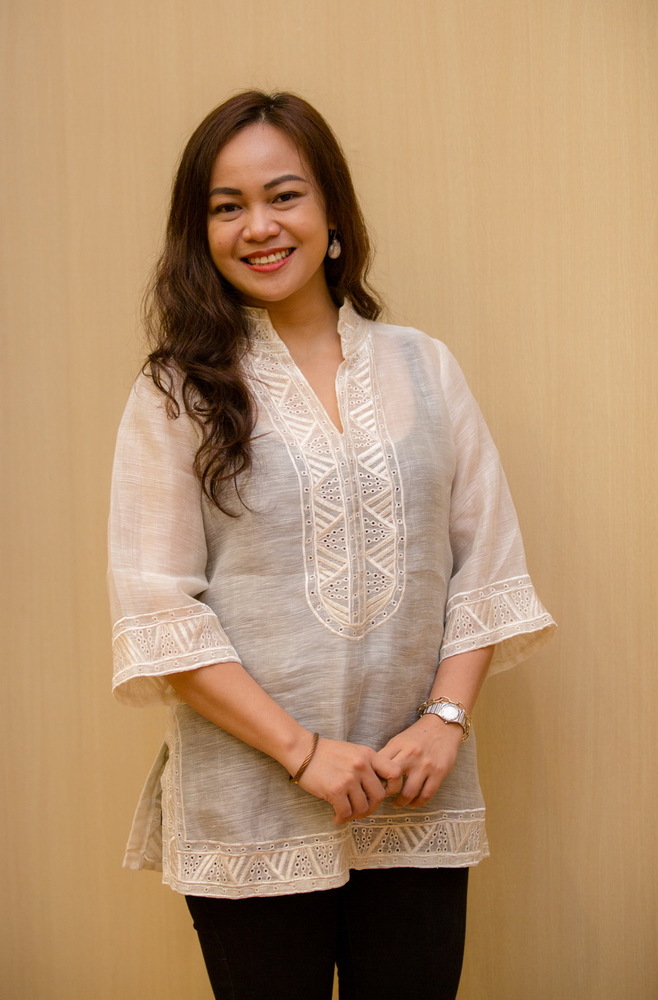SDG8
Achieving Sustainable Development is Fundamentally Anchored to What Makes Governance Inclusive Across Levels
Dr. Weena Gera receives the 2018 Gro Brundtland Award during the Week of Women in Sustainable Development from Dr. Gro Harlem Brundtland, Tang Prize Foundation and NCKU President Huey-Jen Jenny Su at NCKU, April 3rd.
Endorsed by Dr. Gro Harlem Brundtland, granted by Tang Prize Foundation and organized by NCKU, the Gro Brundtland Week of Women in Sustainable Development commits to engage outstanding female researchers for public health and sustainable development. It empowers an international platform for collaboration and partnership of female researchers in Taiwan and developing countries.
Dr. Gera is Assistant Professor of Governance and Development in the Political Science Program, College of Social Sciences at the University of the Philippines Cebu, specializing in the evolving structures of governance and their development implications on fragile states, particularly within Asia and the Pacific. She takes immense pride to be receiving an award that bears the name of a globally respected and admired leader, Dr. Gro Brundtland, the pioneer of sustainable development vision that continues to be used as the framework for global decision-making on environmental, social and economic development policy.
Her study examines the implementation of tripartite co-regulation in sustainability monitoring of the coal mining industries in the Philippines and Indonesia. Her findings indicate regulatory capture of monitoring mechanisms by patrimonial interests within the states, creating disincentives for sustainability performance among coal mining corporations.
This regulatory capture stems from the ambivalence of legal frameworks that fragments intergovernmental allocation of regulatory authorities and complicates monitoring systems.
Thus the tri-partite co-regulation could not integrate structures of industry self-regulation and could not institutionalize standard processes for legitimate civil society representation. The study signifies the prevailing pitfalls in both countries’ co-regulation frameworks that are anchored to soft policy instruments by multilateral initiatives and reporting mechanisms, such as the Open Government Partnership initiative, that could not enforce binding sanctions to non-accountability.
Despite scientific evidences of coal’s hazards and dangers to planetary and human health, the coal mining industry is poised to endure particularly with the rising demand in Asia and the developing regions. The use of coal remains central to capital accumulation. Thus, how the industry is managed and regulated, especially in countries with noted weak regulatory capacity by the state, pose critical implications on sustainability. This study contributes to present and future stocktaking of appropriate frameworks for business regulation, particularly the ‘tripartite co-regulation/multi-stakeholder regulation’ to foster collective industry regulation in the midst of state weakness.
The Philippines and Indonesia are two of the leading global suppliers of minerals and ores and hosts to large-scale coal mining industries. However, both were ranked as among the world’s ten worst governments in the Fraser Institute’s Annual Survey of Mining Companies 2016 Policy Perception Index. How the governments arrange institutions and collaborations to regulate mining industries, including mining monitoring to enforce industry and corporate accountability, pose critical implications on achieving sustainable energy and extractive sectors.
UNDP (2014) notes that sustainable development requires a new approach to address the political, not just the technical, aspects of development solutions. It also requires that public officials account for their actions and that mechanisms for collaboration are generated across sectors and promote inclusion.
Her research has examined appropriate policy interventions and governance arrangements that can effectively steer industries and businesses towards sustainable operations beyond compliance of environmental standards. In the context of weak/patrimonial states such as the Philippines and Indonesia, governance specialists would have to rethink about the use of legally non-binding soft policy instruments and voluntary mechanisms of prevailing global multilateral initiatives in enforcing industry accountability and sustainability performance.
Dr. Gera concludes that designing intervention and incentive systems beyond the state that could well integrate and maximize the benefits of private regulation by the industry will be required, as well as institutionalize mechanisms for legitimate civil society representation, to warrant high levels of accountability from public regulation.
“In the Philippines, the female researchers and scientists are as competitive as their male counterparts in terms of scientific productivity,” commented Dr. Gera. “We do share the same access to institutional incentives available, at least based on my professional experience. I should say though that there remain structural barriers depriving many Filipino girls from getting the quality education and scholarship that could give them the agency to be competitive in their chosen profession, if they could choose a profession at all.”
Endorsed by Dr. Gro Harlem Brundtland, granted by Tang Prize Foundation and organized by NCKU, the Gro Brundtland Week of Women in Sustainable Development commits to engage outstanding female researchers for public health and sustainable development. It empowers an international platform for collaboration and partnership of female researchers in Taiwan and developing countries.
Dr. Gera is Assistant Professor of Governance and Development in the Political Science Program, College of Social Sciences at the University of the Philippines Cebu, specializing in the evolving structures of governance and their development implications on fragile states, particularly within Asia and the Pacific. She takes immense pride to be receiving an award that bears the name of a globally respected and admired leader, Dr. Gro Brundtland, the pioneer of sustainable development vision that continues to be used as the framework for global decision-making on environmental, social and economic development policy.
Her study examines the implementation of tripartite co-regulation in sustainability monitoring of the coal mining industries in the Philippines and Indonesia. Her findings indicate regulatory capture of monitoring mechanisms by patrimonial interests within the states, creating disincentives for sustainability performance among coal mining corporations.
This regulatory capture stems from the ambivalence of legal frameworks that fragments intergovernmental allocation of regulatory authorities and complicates monitoring systems.
Thus the tri-partite co-regulation could not integrate structures of industry self-regulation and could not institutionalize standard processes for legitimate civil society representation. The study signifies the prevailing pitfalls in both countries’ co-regulation frameworks that are anchored to soft policy instruments by multilateral initiatives and reporting mechanisms, such as the Open Government Partnership initiative, that could not enforce binding sanctions to non-accountability.
Despite scientific evidences of coal’s hazards and dangers to planetary and human health, the coal mining industry is poised to endure particularly with the rising demand in Asia and the developing regions. The use of coal remains central to capital accumulation. Thus, how the industry is managed and regulated, especially in countries with noted weak regulatory capacity by the state, pose critical implications on sustainability. This study contributes to present and future stocktaking of appropriate frameworks for business regulation, particularly the ‘tripartite co-regulation/multi-stakeholder regulation’ to foster collective industry regulation in the midst of state weakness.
The Philippines and Indonesia are two of the leading global suppliers of minerals and ores and hosts to large-scale coal mining industries. However, both were ranked as among the world’s ten worst governments in the Fraser Institute’s Annual Survey of Mining Companies 2016 Policy Perception Index. How the governments arrange institutions and collaborations to regulate mining industries, including mining monitoring to enforce industry and corporate accountability, pose critical implications on achieving sustainable energy and extractive sectors.
UNDP (2014) notes that sustainable development requires a new approach to address the political, not just the technical, aspects of development solutions. It also requires that public officials account for their actions and that mechanisms for collaboration are generated across sectors and promote inclusion.
Her research has examined appropriate policy interventions and governance arrangements that can effectively steer industries and businesses towards sustainable operations beyond compliance of environmental standards. In the context of weak/patrimonial states such as the Philippines and Indonesia, governance specialists would have to rethink about the use of legally non-binding soft policy instruments and voluntary mechanisms of prevailing global multilateral initiatives in enforcing industry accountability and sustainability performance.
Dr. Gera concludes that designing intervention and incentive systems beyond the state that could well integrate and maximize the benefits of private regulation by the industry will be required, as well as institutionalize mechanisms for legitimate civil society representation, to warrant high levels of accountability from public regulation.
“In the Philippines, the female researchers and scientists are as competitive as their male counterparts in terms of scientific productivity,” commented Dr. Gera. “We do share the same access to institutional incentives available, at least based on my professional experience. I should say though that there remain structural barriers depriving many Filipino girls from getting the quality education and scholarship that could give them the agency to be competitive in their chosen profession, if they could choose a profession at all.”

SDG8Developed by NCKU, the Glowing Crane Flower embodies the concept of promoting rural revitalization
View more
SDG8NCKU Partners with KSU, CJCU, and FYU to Jointly Advance International Talent Development Cooperation
View more




















